
views
The Supreme Court is witnessing a battle of sorts between the teenaged Right to Information Act (RTI Act) and the 96-year old Official Secrets Act (OSA) for relevance and meaning.
The RTI Act was passed in 2005 to give effect to the people’s fundamental right to know what the government is doing in their name and how it is spending their tax funds. OSA came into existence in 1923, primarily to punish spies - both local and foreign. The British Raj effectively turned it into a closet to lock up various kinds of information from public scrutiny because it believed the natives could not be trusted. Unfortunately, this trend continues even after independence and the brunt is often borne by fearless journalists and whistle-blowers who expose corruption and wrongdoing in government.
The latest arena of battle is the highest court of the land. Certain reputable citizens and advocates are seeking review of the clean chit the Supreme Court gave in December to the government’s decision to buy 36 Rafale fighter aircraft from Dassault Aviation SA.
The bone of contention is a set of official papers relating to the decision-making process which the court did not have an opportunity to examine earlier. The Attorney General of India initially labelled these papers “stolen” when he found them annexed to the review petition filed in the apex court. Earlier, these documents were splashed across cyberspace by multiple media houses. The petitioners are arguing that such information cannot be kept secret in the age of RTI, while the government is claiming breach of privilege citing provisions from the 147-year-old Indian Evidence Act. How the court will decide these claims and counter claims remains to be seen.
What are official secrets? What is the relevance of OSA in the age of RTI? Can the government claim any special privilege over certain kinds of official documents in the name of national security? Did the media, which put copies of the official documents in public domain, and the petitioners who used them to move the court commit any crime? These issues are being hotly debated. Let us examine these issues one by one.
“Official secrets” do not cover every piece of paper that a babu stamps “secret” or “confidential”. “Official secrets” are not defined anywhere in the OSA. Instead, certain kinds of information are mentioned in the context of offences which are punishable under this law, such as: secret official code or pass word, any sketch, plan, model, article or note or other document.
If a person obtains, collects, records, publishes or communicated such information with the intention of making it directly or indirectly useful to an enemy or if such disclosure is likely to affect the sovereignty and integrity of India, the security of the State or friendly relations with foreign States, he or she may be sent to prison for three years.
If such actions relate to any work of naval, military or air force establishment or station, mine, minefield, factory, dockyard, camp, ship or aircraft or to the naval, military or air force affairs of government or in relation to any secret official code, the punishment may be up to 14 years. Any government official who communicates “official secrets” as explained above, without authorisation can also be prosecuted under this law in addition to anybody outside government who receives and publishes or communicates such information.
Clearly, the OSA is a law meant to punish spies who try to put India’s safety and security in danger. The apex court will have to tell us whether the documents relating to the Rafale deal reported by the media and used by the petitioners are “official secrets” and whether they should be punished for accessing them and publishing them in an “unauthorised” manner.
Older than the OSA are two provisions of the Indian Evidence Act which can be used by the government to shield information from public disclosure. The Evidence Act primarily explains how evidence may be given, taken or treated in court proceedings. Section 123 of this Act bars a government official from giving evidence in court based on “unpublished documents” relating to affairs of State without the permission of the head of the department. Under Section 124 of this law, a government official may resist compulsion to disclose any communication he may have received in a confidential manner, if he thinks public interest would suffer from such disclosure. This was dubbed “sovereign immunity” or “government privilege” in the past.
There are three more layers that bind people in government to keeping its affairs secret at will. The first layer is the oath of secrecy that all ministers, including the Prime Minister and the Chief Ministers, take before occupying office. This oath, written into the Third Schedule of the Constitution, bars them from directly or indirectly communicating or revealing to any person matters that are brought to their notice except as required for discharging their duties.
While babus take an oath of allegiance to the Constitution when they join public service, they are not administered an oath of secrecy. Instead, the rules of conduct which govern them place a bar on communicating any official “document” or “classified information” to any unauthorised person. This is the second layer.
Until a few years ago, many of us outside government were under the mistaken impression that babus classified official documents as “top secret”, “secret” or “confidential” under the OSA. However, the Minister of State for Home Affairs clarified that OSA had no role to play in such decisions, while replying to a Starred Question (No. 557 raised on 5th May, 2015) raised by an MP of the NDA in the Lok Sabha.
Official records are given one of these three labels based on the sensitivity of their contents as determined by bureaucrats from time to time under the Manual of Departmental Security Instructions (Manual). These labels often extend to documents and records that do not strictly fall under the category of “official secrets” as defined in OSA. This is the third layer.
Strangely, this manual is itself marked “confidential” and the government has repeatedly refused to disclose the criteria and procedures used by babus to keep official records secret or confidential. In any accountable democracy, laws, rules and regulations must not be kept secret. In courts, ignorance of the law is not a valid defence against prosecution. This is why laws, rules and regulations must be made public so that people may not take the plea of ignorance to escape punishment.
It is for this reason that the RTI Act requires all rules, regulations, instructions and manuals to be made public by the government, in a voluntary manner. Most importantly, the RTI Act changes the paradigm of governance from secrecy to transparency. This law makes openness the foundation of governance; secrecy is only an exception and limited only to such circumstances as are listed in Section 8 of this Act.
Even when any information is ordinarily exempt from disclosure under this law, it must be opened up if the benefits of such disclosure to the public are greater than the harm caused by disclosure. The legal basis of sharing information with the people has changed from “need to know”, as determined by babus, to the “right to know”, as determined by law.
This is why the RTI Act states in crystal clear terms in two places [Section 8(2) and Section 22] that its provisions override the OSA and any other law, rule or regulation to the extent of inconsistency. The RTI overrides the Indian Evidence Act also if there are any contradictions.
In simpler terms, this means, if any information is required to be kept secret under any other law, including the OSA, it must find justification in any of the exemptions listed in Section 8 of the RTI Act. Only if there is such a match can the information be refused to any citizen. If there is none, such information must be disclosed irrespective of the prohibition contained in those contradictory laws. And most importantly, while an RTI applicant does not have to justify why he or she wants any information from government, it is the job of the bureaucrats to justify why it should not be made public.
Truly, if the right to know is a fundamental right, there should be no need for a citizen to explain ‘why’; it is for the government to justify ‘why not’.
Interestingly, the conduct rules for civil servants at all levels -- IAS, IPS, IFS and the lower rungs of the bureaucracy -- changed the very month in which the RTI Act became operational in 2005 under UPA-I. They are now required to communicate information to any person, in good faith, in accordance with the RTI Act.
The NDA-II government went two steps ahead within less than a year of coming to power, and added to the conduct rules “transparency” and “accountability” as essential values that must inform and guide the conduct of all government servants. Can any government official be faulted for acting on the basis of these values in the current controversy over the Rafale papers? The apex court will have to rule on this issue as well.
Perhaps, this is why the initial outburst of the Attorney General, that the Rafale-related papers were “stolen”-- a comment which he disowned later -- does not find mention in the government’s reply to the review petition currently pending in the Supreme Court. Instead, the government is now claiming sovereign immunity or privilege under the Indian Evidence Act.
In a catena of judgments since independence, the apex court has ruled that while the government may claim privilege or immunity over its “unpublished” documents, under the Indian Evidence Act, it is the court, being an independent and impartial adjudicator, which has to decide what may or may not serve public interest.
So the government is duty-bound to produce any document that the court may summon for the purpose of examination in an ongoing proceeding. The court may obtain these documents in sealed cover and examine them and decide whether to make them public or not.
Some information relating to the Rafale deal was furnished to the apex court in sealed cover last year. The court returned the papers back to government in the same manner. The government has not officially placed an authentic copy of these papers in the public domain till date. The Supreme Court will also have to decide whether the government can claim any kind of privilege under the Evidence Act, over information contained in the Rafale papers that is now published on some websites.
All said and done, ‘sovereign immunity’ and ‘government privilege’ are now obsolete considerations. The Supreme Court has for long looked at them as “public interest” issues.
Will the disclosure of information about the affairs of state from official papers harm any public interest? Justice PN Bhagwati explained this position eloquently in a separate opinion in the 1981 Constitution Bench matter of SP Gupta vs President of India (in which the people’s right to know was recognised for the second time) in the following manner:
“It is axiomatic that every action of the government must be actuated by public interest but even so we find cases, though not many, where governmental action is taken not for public good but for personal gain or other extraneous considerations…
Where the State is a party to an action in which disclosure of a document is sought by the opposite party, it is possible that the decision to withhold the document may be influenced by the apprehension that such disclosure may adversely affect the head of the department or the department itself or the minister or even the government or that it may provoke public criticism or censure in the legislature or in the press, but it is essential that such considerations should be totally kept out in reaching the decision whether or not to disclose the document.
So also the effect of the document on the ultimate course of the litigation whether its disclosure would hurt the State in its defence should have no relevance in making a claim for immunity against disclosure.
The sole and only consideration must be whether the disclosure of the document would be detrimental to public interest in the particular case before the Court…”
Perhaps, it is in recognition of this jurisprudential trend that the apex court asked the Attorney General to read out the relevant provisions of the RTI Act which override the OSA. In an earlier hearing, it had also asked whether the Rafale papers can be kept secret under the pretext of protecting national security when grave allegations of corruption and wrongdoing have been levelled. As the custodian of the Constitution and people’s fundamental rights, which include the right to know, the apex court will have to place a firm gaze on our national motto – ‘Satyameva Jayate’ (truth alone triumphs) while deciding the Rafale review petition.
(The author is with the Commonwealth Human Rights Initiative, New Delhi. Views are personal.)












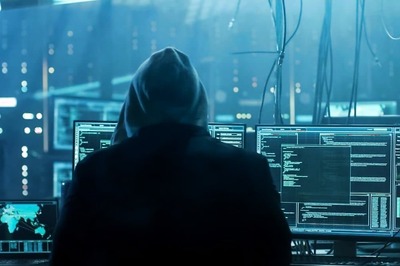
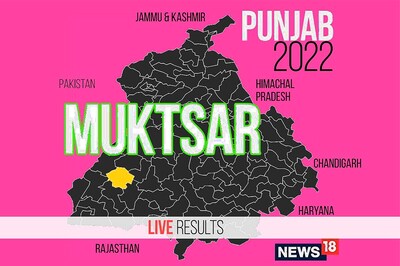

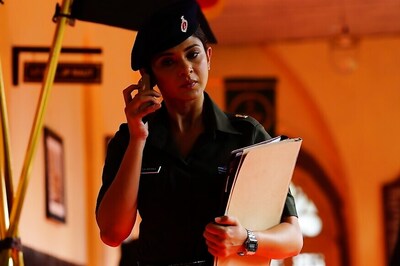


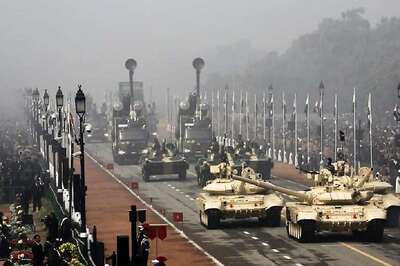
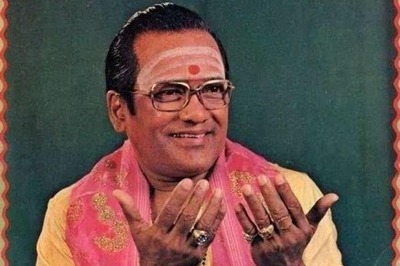
Comments
0 comment